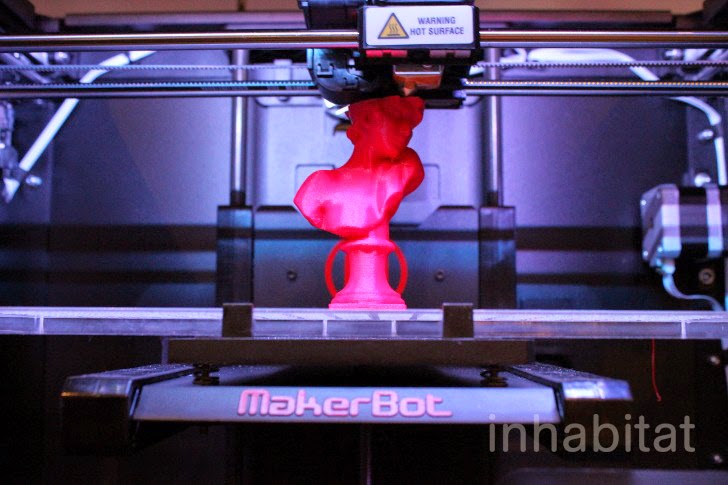Intellectual Property
 |
Consumer Grade 3D Printer
Image by: Creative Tools via Flickr
|
 |
Commercially Available 3D Scanner
Image by: Creative Tools via Flickr
|
New filesharing platforms such as Thingiverse, or My Mini Factory give users the power to share creations and download other peoples designs. This ability is extremely useful to help spread, and create innovative ideas. The downside of such power is creative licensing. Most CAD file sharing websites are self governing and have their own terms and policies on what can be downloaded and what can be shared. While this works well in theory, we have seen this issues in online distribution of other digital media types such as music, or videos. Like music and video, CAD files are very susceptible to illegal downloads.
Another concern shared by many is the use of 3D scanners, which make it possible to scan a physical object to create a CAD file that can then be 3D printed. Currently the performance limitations of 3D printers make it so that it is not possible, or not economically viable to recreate most consumer products. Although right now these limitations keep 3D printers from reaching their full potential, it is likely that 3d printing technology will soon reach extreme heights of manufacturing capability to produce a wide range of goods.
 |
| Image by: Inhabitat Blog via Flickr |
Public Safety
Another threat to public safety worth mentioning is product design. Most industries in America that produce consumer products have to adhere to strict standards regarding product safety. If a company sells a faulty product that injuries a consumer, or causes property damage that company can then become responsible for these consequences. Compared to a system of file sharing, There is no system of responsibility for product failures. Proposed regulations to control or limit the distribution of designs for safety purposes will likely trigger many questions of 1st amendment rights infringement.
The Future of 3D printing
3D printers are likely to have an enormous impact society, most of which will be very positive. It is imperative that the necessary due diligence done to explore ethical dilemmas and protect the public.
This is a very interesting topic, and a very good analysis of the ethical issues involved in 3D printing. The concept of being able to 3D print anything from the comfort of my own home sounds great, but I can also see how this presents a lot of ethical and economic issues. I’m sure that if we get to a point where 3D scanners and printers are able to replicate any object, and strict regulations are not put in place, this would have a very negative impact on our economy. If consumers never had to go to a store to pick up common household objects, but instead printed them at home, countless businesses would be facing a dire future. As with any new technology, we need to make sure that personal property and copyrights are protected. The idea of lethal weapons being formed on 3D printers that you touched on at the end of this blog is also very alarming. Clearly we need to put methods in place to regulate this kind of thing. As you said, some will argue that these kind of regulations would be unconstitutional, but since this issue affects our economy and public safety in such a big way, I definitely think that the government must step in and place restrictions in this area.
ReplyDeleteI appreciate your feedback!
ReplyDeleteI was very interested in this blog entry. I think you did a very good job describing both the issue. 3D printing is obviously a very controversial topic. It's very new technology. As we all know, new technology can both be amazing and a little dangerous without regulations. "With great power, comes great responsibility"-Spider-Man, 2002. 3D printing is slowly becoming more available to the public. This might be the next great thing. It's a brilliant idea! But, it could also be the technology that harms a lot of people because some crazy person decides to use the 3D printer for ill.
ReplyDeleteRegulations must be made, and 3D printers owned by the public will have to be incapable of producing some designs. I'm not sure how that would be possible, but I'm sure there are computer scientists and computer engineers out there who would be able to help design 3D printers that would be safe for the public to have.
The largest, most obvious issue here is the printing of weapons. In complete and utter honesty, even though we shouldn’t make it easier for a bad person to harm others, I think that if a person truly wanted to hurt others, he or she would find a way. If a bad person didn’t have access to a 3D printer, then they’d find someone to other way to carry out their plans. 3D printing has other ethical dilemmas, as you pointed out, that need to be dealt with before this technology can be made more accessible to the public.